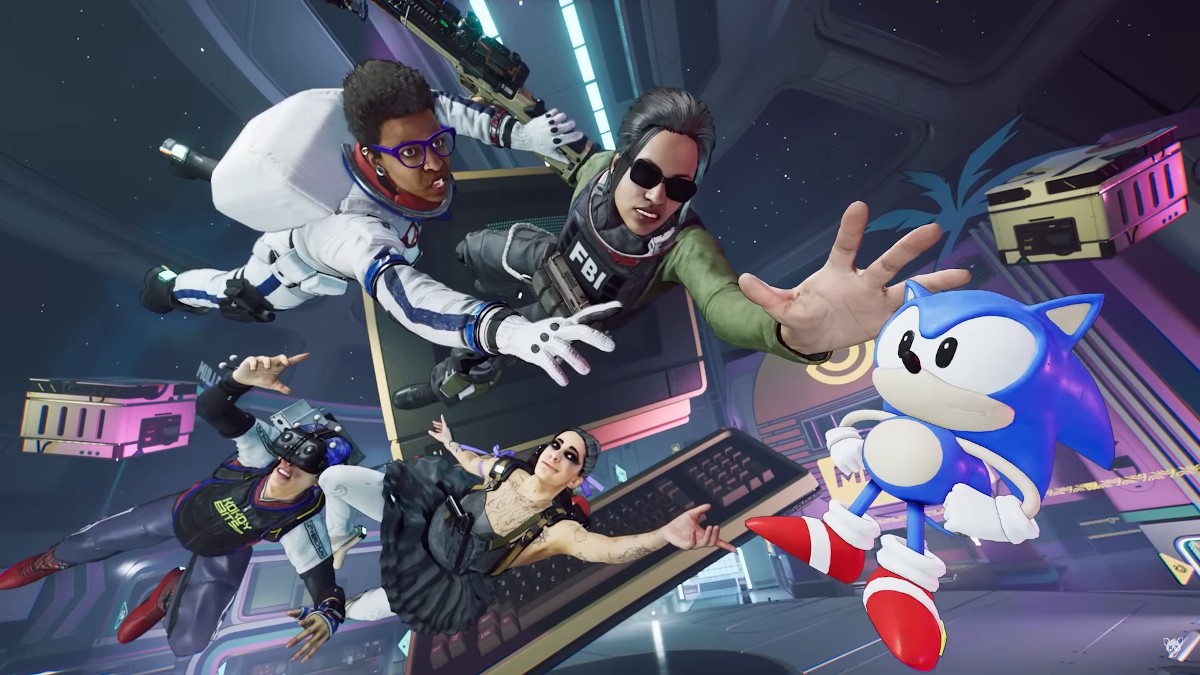The decision by Sega to cancel its multiplayer shooter Hyenas came as a shock last week, and a new report discusses its chaotic development process and staggering costs. The project was allegedly Sega’s most expensive ever. While exact figures aren’t revealed, the floor for that cost is a comparison to Shenmue, with was the most expensive game ever made back in 1999, with different sources putting its budget at either $47 million or $70 million.
The details come via a video exposé published by YouTuber Volound and corroborated by VGC. Sega’s willingness to pour that much money into a project that was six years in development suggests a high degree of enthusiasm, which one of the sources alludes to: “it was being backed by some big names in the company, and [Gran Turismo director] Neill Blomkamp was even brought in to tighten up the narrative pitch to secure inline funding.” Prior to Blomkamp’s input, however, the game is described as having been “utterly rudderless” and “vague.”
One source characterizes the problems that affected the game succinctly as. “Total lack of direction, many of the leadership asleep at the wheel but they never seem to lose their jobs. An engine change, part way through the process. Attempting to break into a saturated market, and not committing to do anything adventurous with the game.” That’s a lot of factors, and the full report goes into much more detail, as outlined below.
According to the report, Hyenas’ development was plagued with issues since before the beginning. The team responsible — the console team at Creative Assembly — had previously made the well-received Alien: Isolation. However, poor sales sunk the prospects of a sequel. The team moved onto Halo Wars 2 at the behest of then-studio director Tim Heaton, who allegedly made a speech about Creative Assembly being a “strategy games studio first,” which sparked an exodus.
After Halo Wars 2 released in 2017, the team moved on to what would become Hyenas. The original plan was to build the game upon Creative Assembly’s proprietary Cathode engine, which was used for Alien: Isolation. Despite that, some staff were moved onto Total War during pre-production, while others prototyped and experimented with both Cathode and Unreal Engine until a switch to the latter was mandated.
At the same time, the plan was for the game to draw from hardcore looter-shooters like Escape from Tarkov set in a “messed-up world controlled by the elite.” The tone would have been “Han Solo with a bit of Firefly for good measure.” However, with the approach seeming too hardcore for a mainstream audience (it’s speculated that Hyenas was part of Sega’s Super Game project), the edges were softened over time and the narrative tone shifted from “loveable rogues” to “gleeful audacity.” One source said, “There was a period where it felt like we just had no idea where we were going with the tone, or what needed to be done.”
That was when Blomkamp came onboard, shaping the narrative into a near-final design of people plundering physical goods, interspersed with a (un)healthy dose of internet humor. While much of that was retained, the design shifted slightly again to “‘Payday in space'” and while the approach was finally clear, problems were known internally. “All internal feedback pointed to it being a bad game, a poor experience, and something ultimately that will melt into the background of an already saturated multiplayer shooter market,” said one source. In spite of that, they pressed on, with one source suggesting that the plan could have been “to release a bad game and fix it after the fact.”
The development of Hyenas was so chaotic and expensive that it sparked something unprecedented for Creative Assembly, with people from Sega Japan basically becoming embedded in the studio. According to one source, the publisher was usually hands-off in the oversight it provided with only occasional check-ins, suggesting that there was a considerable amount of pressure on the project.
The cancelation has caused significant upheaval at Creative Assembly, with layoffs reportedly affecting even departments completely unassociated with Hyenas. The sources providing the details report anger and frustration about the indiscriminate layoffs, but suggest that many members of the Hyenas development team were resigned to the outcome, having recognized the problems long before the cancelation.
There’s mention of another Unreal Engine project in the works, and Creative Assembly is releasing Total War: Pharaoh next week, so it will be worth seeing what comes next for the studio.






Published: Oct 4, 2023 06:55 pm